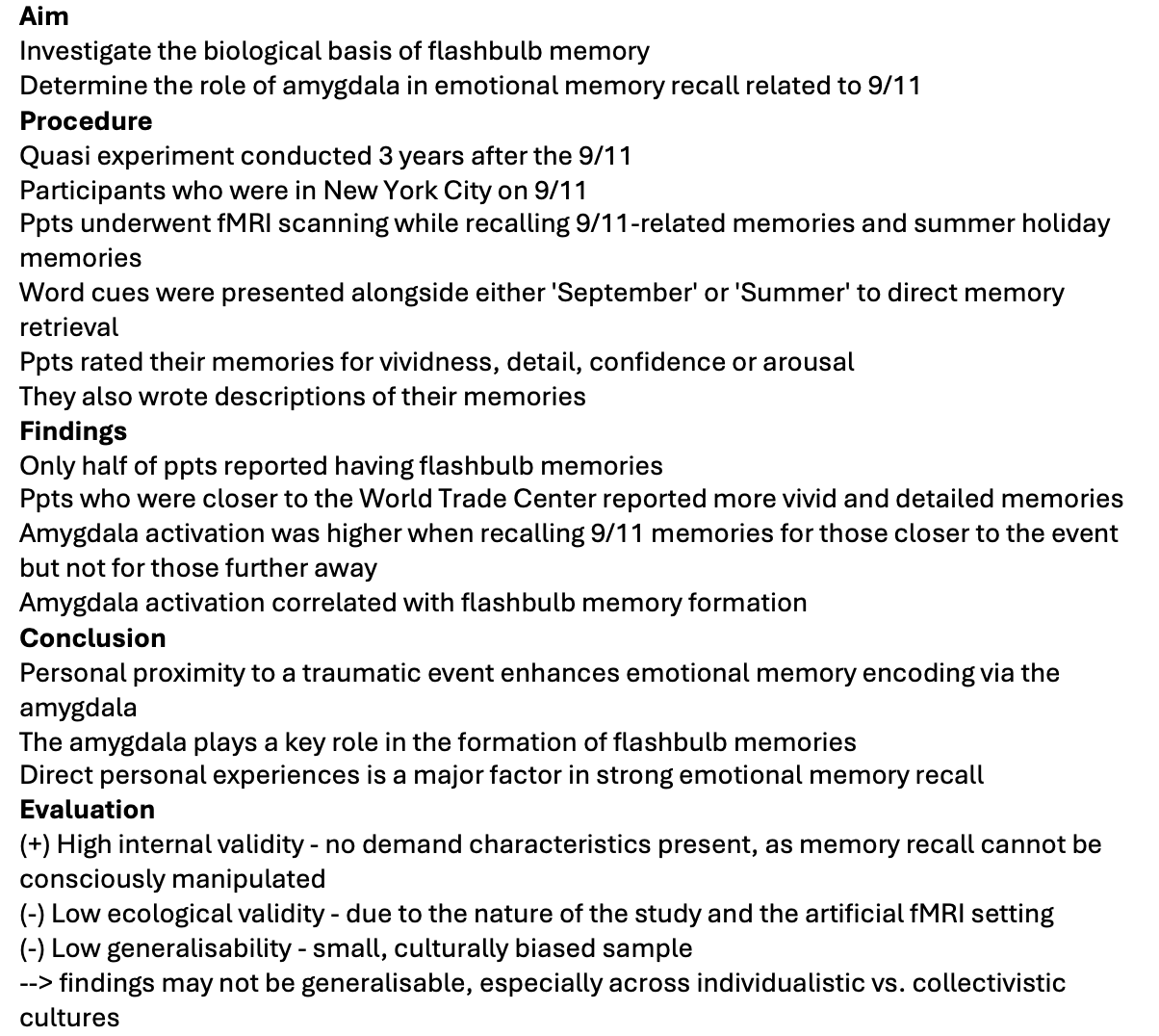Sharot et al.
Aim
Investigate the biological basis of flashbulb memory
Determine the role of amygdala in emotional memory recall related to 9/11
Procedure
Quasi experiment conducted 3 years after the 9/11
Participants who were in New York City on 9/11
Ppts underwent fMRI scanning while recalling 9/11-related memories and summer holiday memories
Word cues were presented alongside either 'September' or 'Summer' to direct memory retrieval
Ppts rated their memories for vividness, detail, confidence or arousal
They also wrote descriptions of their memories
Findings
Only half of ppts reported having flashbulb memories
Ppts who were closer to the World Trade Center reported more vivid and detailed memories
Amygdala activation was higher when recalling 9/11 memories for those closer to the event but not for those further away
Amygdala activation correlated with flashbulb memory formation
Conclusion
Personal proximity to a traumatic event enhances emotional memory encoding via the amygdala
The amygdala plays a key role in the formation of flashbulb memories
Direct personal experiences is a major factor in strong emotional memory recall
Evaluation
(+) High internal validity - no demand characteristics present, as memory recall cannot be consciously manipulated
(-) Low ecological validity - due to the nature of the study and the artificial fMRI setting
(-) Low generalisability - small, culturally biased sample
--> findings may not be generalisable, especially across individualistic vs. collectivistic cultures
